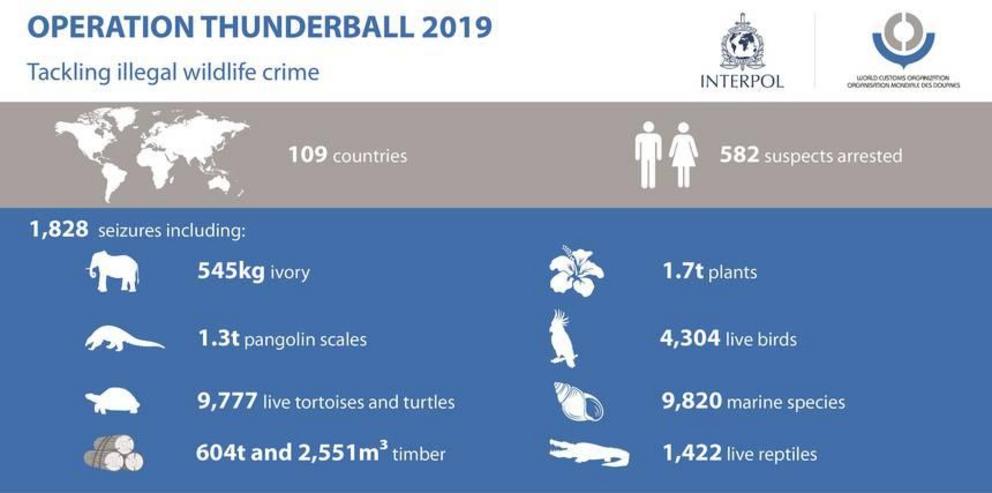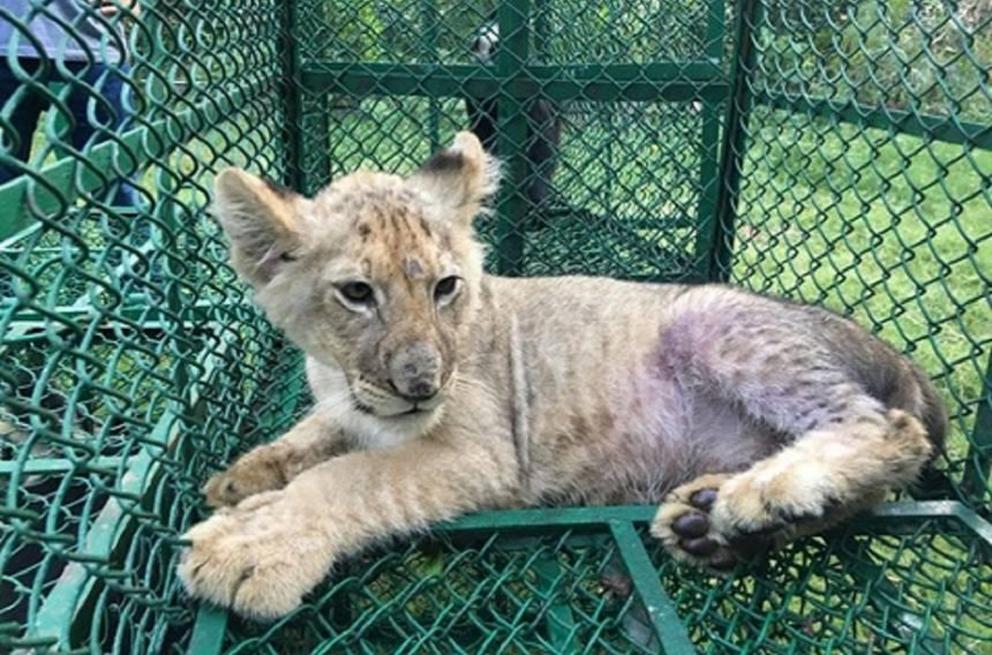Nearly 600 suspects arrested in largest anti-wildlife-trafficking operation ever
Lion cub rescued in India by the Wildlife Crime Control Bureau and West Bengal Forest Department on its way to the UK from Bangladesh.
The World Customs Organization and INTERPOL retrieved thousands of endangered animals during a sweep of arrests across 109 countries.
Every day, all day long, wildlife crime is happening – and it usually feels like a supremely depressing thing that seems somehow impossible to stop.
But today we have been given a glimmer of hope. The World Customs Organization (WCO) and the International Criminal Police Organization (otherwise known as INTERPOL) have announced the success of Operation Thunderball.
According to the WCO, in June the two agencies conducted nearly 2,000 seizures in a historic joint-operation, noting that “Initial results have led to the identification of almost 600 suspects, triggering arrests worldwide. Further arrests and prosecutions are foreseen as ongoing investigations progress.”

Operation Thunderball (which I like to picture as being orchestrated by an angry Zeus) made 1,828 seizures, including:
- 23 live primates
- 30 big cats and large quantities of animal parts
- 440 pieces of elephant tusks and an additional 1200 pounds of ivory
- Five rhino horns
- More than 4,300 birds
- Just under 1,500 reptiles and nearly 10,000 turtles and tortoises
- Almost 7,700 wildlife parts from all species
- 2,550 cubic meters of timber (equivalent to 74 truckloads)
- More than 2,600 plants
- Almost 10,000 marine wildlife items
Among the wildlife parts were seven packages of pangolin parts weighing 1200 pounds bound for Asia seized in Nigeria.
“It’s landmark. It’s the first time such a large joint network has been mobilized — across 109 countries,” INTERPOL's wildlife expert Henri Fournel told The Associated Press.
“What we lacked in tackling wildlife crime was a concerted network and this is what we have now,” he added.
INTERPOL Secretary General Juergen Stock said in a statement, “Wildlife crime not only strips our environment of its resources, it also has an impact through the associated violence, money laundering and fraud.”
The WCO notes that wildlife crime is on the rise and closely linked to organized crime.
Susan Lieberman, VP of International Policy for the Wildlife Conservation Society (WCS), says that WCS applauds the Operation, but that the work doesn’t stop here.
“This massive disruption of criminal networks is key to saving endangered wildlife across the globe. But seizures and arrests are only the first step – governments now must follow up with strong, meaningful prosecutions. In particular, the criminals running these networks must feel the full weight of the law, including deterrent penalties and jail sentences.”
Visit INTERPOL to see photos of some of the rescued animals, including a white tiger cub, an infant langur, and thousands of turtles.

